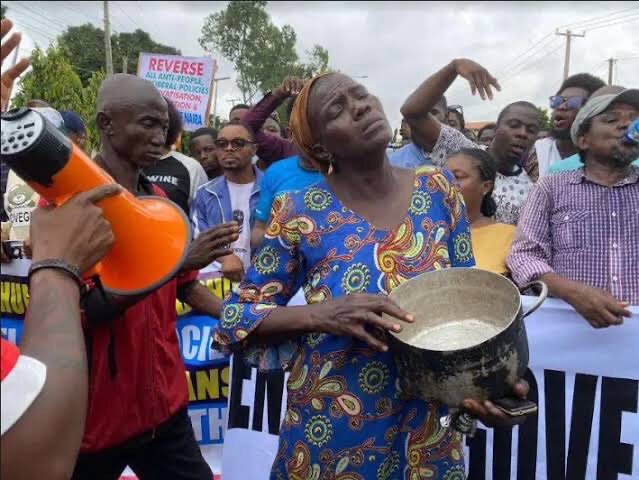Nigeria Hunger Protest 2024: A Call for Action Amidst Growing Crisis
Nigeria, a nation rich in natural resources and cultural heritage, finds itself grappling with a profound crisis: hunger. The Nigeria Hunger Protest 2024 has emerged as a significant event, spotlighting the urgent need for governmental and global intervention. As the nation faces escalating food insecurity, the protests have become a powerful platform for citizens to demand change and justice.
The Crisis at a Glance
Hunger in Nigeria has reached alarming levels, exacerbated by a combination of factors including economic instability, conflict, and climate change. The United Nations estimates that millions of Nigerians are currently experiencing severe food insecurity. This crisis is not just about scarcity but also about accessibility and affordability of essential food items.
Economic downturns and inflation have drastically reduced the purchasing power of the average Nigerian. Additionally, ongoing conflicts in regions like the Northeast have displaced countless individuals, further straining food resources. Climate change has also played a role, disrupting farming and agriculture, which are vital to the nation’s food supply.
The Genesis of the Hunger Protest
The Nigeria Hunger Protest 2024 began as a grassroots movement but has quickly gained momentum, attracting widespread attention from both national and international communities. Triggered by reports of worsening food shortages and government inaction, the protests have seen participation from various sectors of society including activists, students, and concerned citizens.
Protestors have taken to the streets of major cities like Lagos, Abuja, and Port Harcourt, calling for immediate action from the Nigerian government. The key demands include the implementation of effective food security policies, increased support for displaced individuals, and measures to control inflation and stabilize the economy.
The Role of Social Media and Advocacy Groups
Social media has played a crucial role in amplifying the voices of protestors. Platforms like Twitter, Facebook, and Instagram have been instrumental in mobilizing support and spreading awareness about the hunger crisis. Hashtags related to the Nigeria Hunger Protest 2024 have trended globally, bringing international attention to the issue.
Advocacy groups and NGOs have also been at the forefront of the movement, providing support to protestors and working to ensure that their demands are heard. These organizations have highlighted the dire situation through reports, infographics, and live updates, urging the international community to pressure the Nigerian government for a swift response.
Government Response and Challenges
The Nigerian government has faced criticism for its handling of the hunger crisis. While officials have acknowledged the severity of the situation, many argue that their responses have been insufficient. Efforts to address the crisis have included emergency food aid and temporary relief measures, but these have been criticized as inadequate in the face of such a massive problem.
Challenges such as corruption, bureaucratic inefficiency, and inadequate infrastructure have hindered effective response efforts. Additionally, political instability and ongoing conflicts complicate the situation further, making it difficult to implement comprehensive solutions.
The Path Forward
For the Nigeria Hunger Protest 2024 to lead to meaningful change, several steps need to be taken. First and foremost, there must be a concerted effort from the government to address the root causes of food insecurity. This includes investing in sustainable agriculture, improving economic policies, and ensuring that aid reaches those who need it most.
International support will also be crucial. Global organizations and donor agencies must collaborate with Nigerian authorities to provide resources and expertise. Furthermore, tackling corruption and improving governance will be essential to ensure that aid is used effectively.
The Nigeria Hunger Protest 2024 is a critical moment in the nation’s history, representing a powerful call for action against a pressing humanitarian crisis. As citizens continue to demand change, it is imperative for both the Nigerian government and the international community to respond with urgency and resolve. Addressing the hunger crisis will require a multifaceted approach, involving both immediate relief efforts and long-term strategies to build a more resilient and equitable food system.
In the coming months, the world will be watching closely to see how Nigeria navigates this crisis. The outcome of the protests could very well shape the future of the nation and serve as a crucial lesson on the importance of timely and effective action in the face of humanitarian emergencies.



